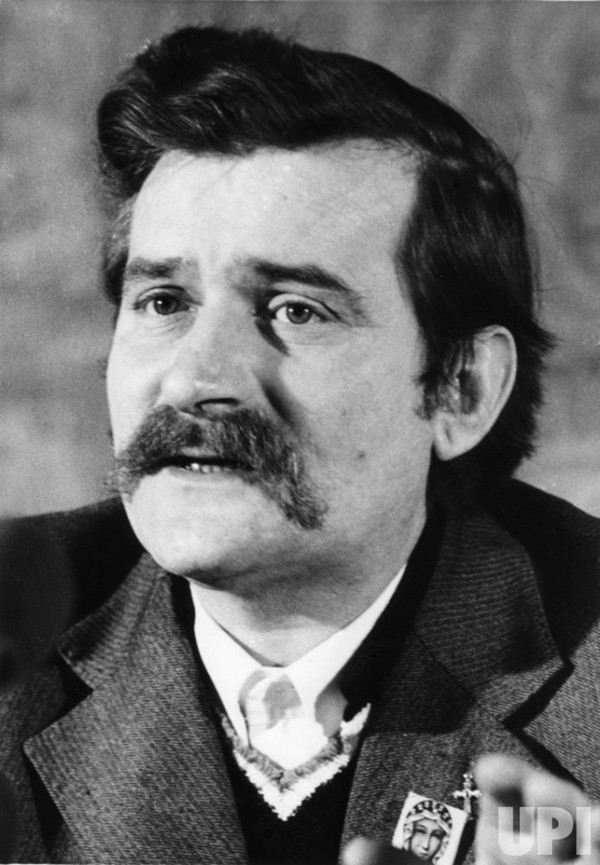
40th Anniversary of Poland’s Solidarity
The ancient city of Gdansk, known in German as Danzig, lies on the Baltic coast of northern Poland. Today the city is closely associated with the trade union and political movement Solidarity which emerged among the workers at the Lenin Shipyard.
The American author and historian Timothy David Snyder recently wrote in the Polish monthly Wszystko Co Najwazniejsze, “The creation of Solidarity was one of the most important events in the history of Poland and the world at the end of the 20th century. It became a moment that changed the essence of the Leninist system. Before that, the communist party…had a monopoly on power. This changed when Solidarity was founded.”
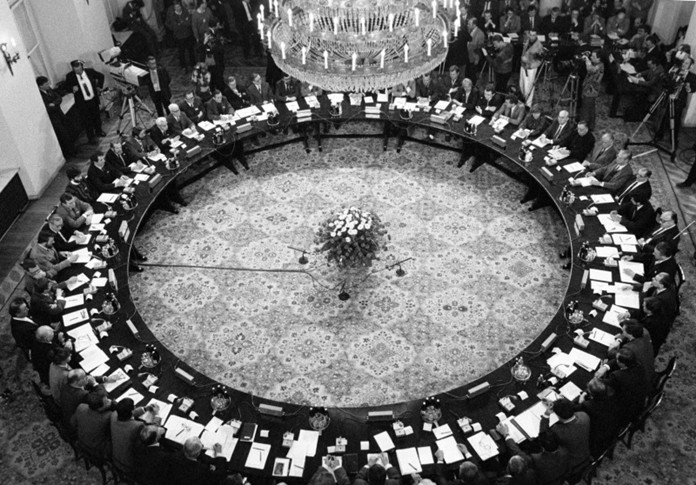
David Ost, professor of political science at Hobart and William Smith Colleges comments that, “Poland’s Solidarity trade union was one of the most impressive workers’ movements in postwar Europe. It rocked the foundations of an autocratic regime…Solidarity burst onto the scene after a wave of wildcat strikes. It had a huge impact throughout the Eastern Bloc and in many ways it was the beginning of the end for Soviet-style Communism.”
However, as Professor Snyder observes, “The strikes themselves were not only a form of protest – they also were a form of building a new movement, creating new structures. This was the most important thing in August 1980 at the Gdansk Shipyard. Strikes should not be viewed only as a revolt against the communist government. It was also an example of long-term thinking and the establishment of a movement.”
The roots of Solidarity lie in the turbulent years of the 1970s when food prices increased dramatically and Poland’s economy stagnated. Social unrest was rife. It emerged as a broad anti-bureaucratic social movement, using methods of civil resistance to advance the causes of workers’ rights and social change. During its early days, few people in Gdansk could have realised that their bold actions were to unlock a chain of dramatic events. Not only did the movement bring about the end of Communist rule in Poland, the election of 1989 also played a direct role in the fall of the Berlin Wall. More significantly, along with other factors it influenced the dissolution of the Soviet Union in 1991. Solidarity was not merely a chapter in Polish history but a movement which united the Polish people and influenced events worldwide. And this is why, forty years on, its birth is cause for celebration.
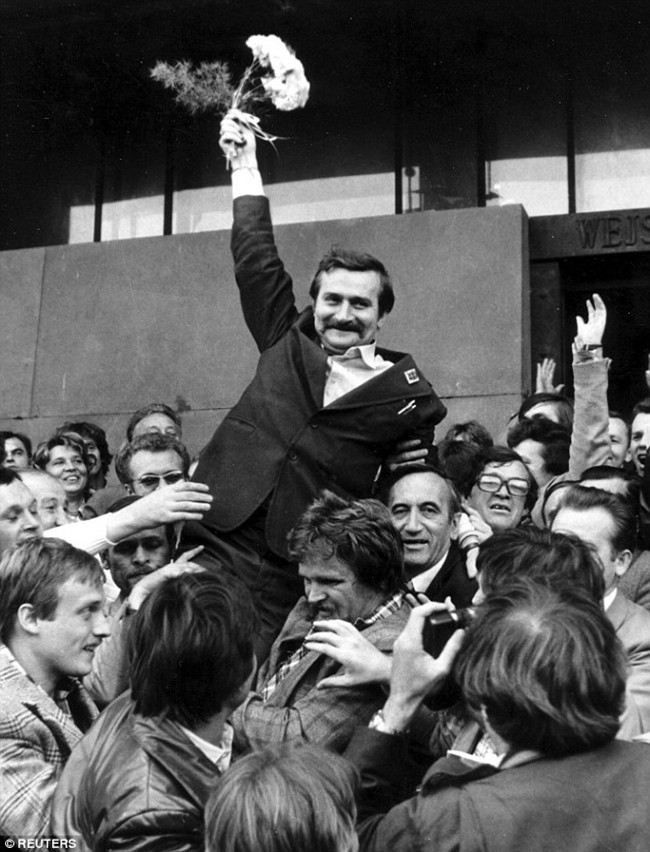
But the road was fraught with challenges. Solidarity was the first recognized independent union in a Warsaw Pact country. In September 1981 it had a membership of about ten million people – a third of the country’s work-force. However, the Polish communist government was determined to abolish the movement from the start and it was forcibly suppressed. Later the same year, a massive military operation began and martial law was imposed. Authors Lukaz Karminski and Maceij Korkuc describe how “tanks and armoured vehicles appeared on the streets, telephone lines were cut, people were not allowed to travel and nearly 10,000 members of Solidarity and other organizations passed through internment camps.” The international community reacted vigorously and there were demonstrations all over the world in support of the Poles.
The government’s attempts to abolish the movement failed, thanks to the determination, will-power and resilience of the Polish people. Solidarity went underground with significant financial support from the Vatican and the United States. Many non-violent clandestine organizations were formed all over the country and in 1983 the Nobel Peace Prize was awarded to Lech Walesa, one of the founders and the popular leader of the Solidarity movement.

After years of repression, Solidarity had gained so much momentum that the communist government, realizing that change was inevitable was forced into negotiation. The so-called Roundtable Talks of 1989 led to elections, and by the end of that year, a Solidarity-led coalition government had been formed. Lech Walesa, a shipyard electrician by trade, was elected President.
As Professor Snyder observes, “The fact that the existence of Solidarity was legalised on 31st August 1980 was significant for three reasons. First, it was a signal that communism did not last forever. Previously this system seemed insurmountable; no-one could imagine proposing an alternative. Secondly, Solidarity proved that a new, post-war Poland had been born. Thirdly, Solidarity demonstrated that there was a real civil society in Poland that really discussed its values and directions of development.”
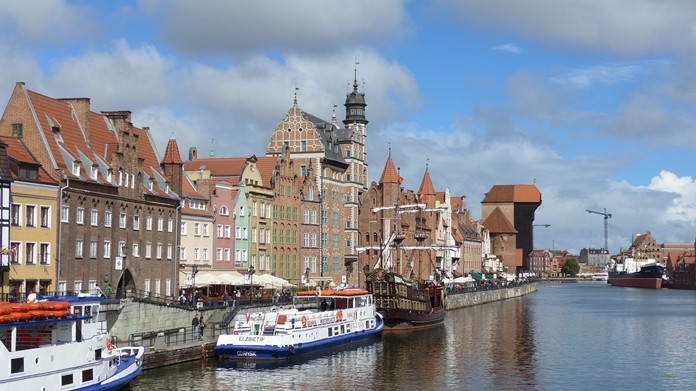
Along with the coat of arms and the national colors, the Polish national anthem is one of the three national symbols defined by the Polish constitution. It’s a lively and rhythmical mazurka which has its origins in the folk dances of Mazovia in central Poland and it’s been popular for generations. Although in triple time, the music has a victorious march-like feel, with impulsive rhythms. The melody bursts with vigour and energy and has a feeling of solid determination and resilience yet with moments of yearning and elation. Perhaps the music brought encouragement and hope during the uncertain days when Solidarity was struggling for its existence.
The Polish people are proud of their thousand year rich history and also proud of the Solidarity movement which had such a significant impact on so many other countries. Perhaps too, Solidarity is also meaningful at a more profound level; that whatever our national, racial, economic and ideological differences, we are all part of a single human family.
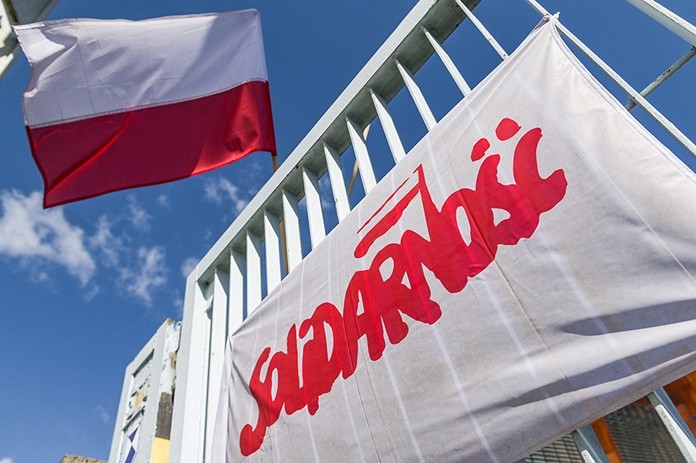
 |
 |
 |





